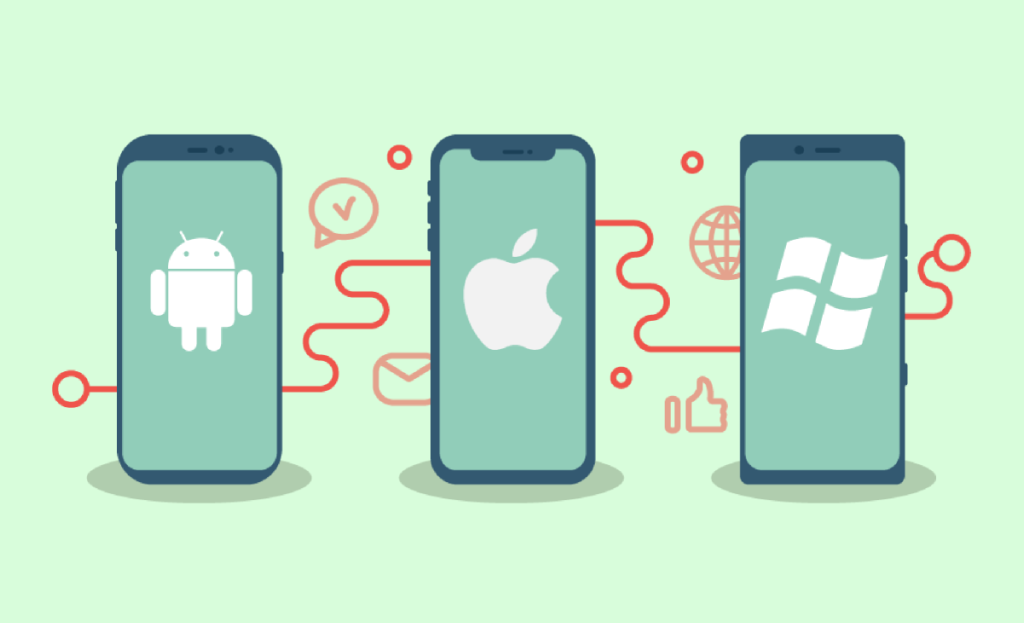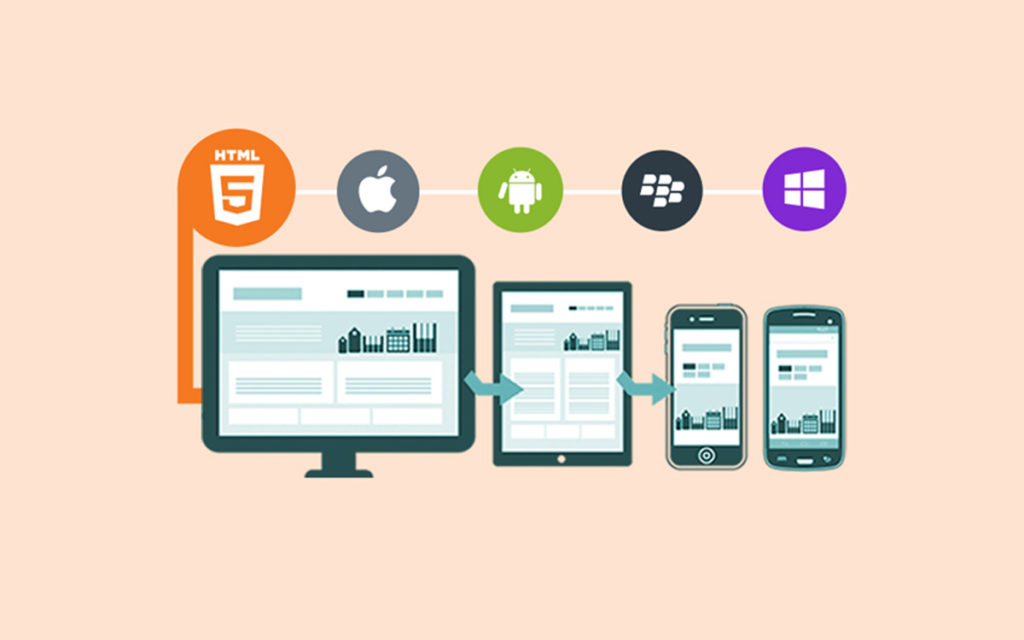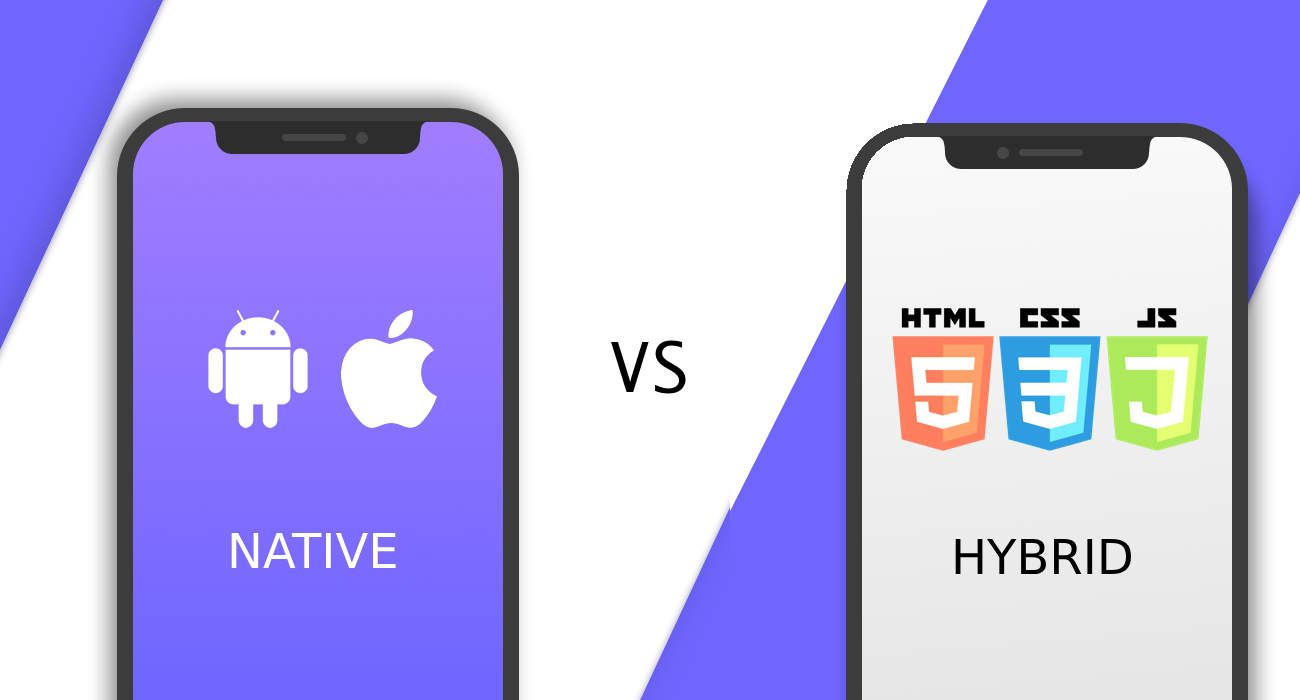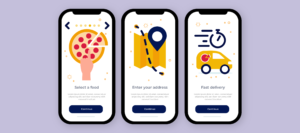The rise in the demand and use of mobile devices has precipitated the design and development of various applications to meet the needs of the teeming population of users of smartphones. The development of mobile applications has, therefore, evolved through different phases to meet the needs of users on different platforms or environments on or for which their smartphones are made.
There is an extensive collection of applications covering communication, information, entertainment, transportation, health, and much more. At the time of writing this piece, the main operating systems are Android, iOS, and Windows with their respective marketplaces such as Google Play, App Store, and Windows Marketplace- all of which have not fewer than three million available applications. Looking at all the mobile applications services, they are similar to one another but at a closer look at how they were developed, their speed, responsiveness, and usability, some subtle differences will be noticed. Meanwhile, these apps are categorized into two classes: native apps and hybrid apps.
Hybrid and native apps are essential applications that enhance the use of mobile technology and provide users with an exhilarating experience as they get the best experience from their devices. Although the two categories of applications are designed to offer functional purposes, they have individual differences that are worth discussing. While considering these apps, several questions come to mind about how they are made; the technologies used to create them, platforms they are designed to run, and much more. All these questions will be answered in this informative and intriguing write-up about the differences between hybrid vs native app.
Latest Blog – Watch Out For Mobile App Development Trends in 2022
What is a Native App?

A native app is a program or software that is designed and developed to perform specific functions on a designated or particular platform or environment. It is observed that applications that were designed taking the peculiarities of their platforms into consideration offer the best benefits while those applications made on the hybrid platform can be tailor-made for a specific environment.
A native app primarily refers to applications that are developed in the native language of their terminal. Considering the platform on which a particular application will function, a specific language for it will be used for example apps that will run on the Android operating system are developed using Java while apps meant to run on the iOS are usually developed using Objective C and Swift, and Windows applications are developed using C# and Visual Basic Net. In summary, native apps are software developed for a specific software framework, operating system, or hardware platform
Reasons for Native Apps
Native apps are preferred by most people due to their cutting-edge over hybrid apps. And here are some of the reasons native apps are preferred:
- Native apps are developed by the standards and tools made by the OS companies like Apple and Google hence any new feature introduced in iOS or Android will definitely be first available to the native apps.
- Investing in native apps makes sure that the language and technology will last longer. Objective-C/Swift and Android SDK-based apps have been staying for about a decade now, while many hybrid frameworks have come and gone!
- Native SDKs access devices’ features without being subjected to the complexities of native plugins.
- Native code is, undoubtedly, faster than HTML and JavaScript. Hence, HD games, graphical applications, and intensive animation applications perform well as native apps.
- These are not dependent upon open-source libraries and platforms.
Downsides of Native Apps
Despite their high level of reliability and performance, native apps also have their disadvantages, and they are explained below:
- They require separate development processes for each platform, and that takes more development time.
- Each platform will have its code, release cycle, and updates, and all these increase cost and development time.
- Updating native apps across all platforms with the same features concurrently is exceptionally challenging due to the different codebase.
- It is costlier to develop and maintain the same application on all platforms.
What is a Hybrid App?

A hybrid app is a program that combines features of native apps and web browsers. Hybrid apps are developed for a predetermined platform, but they must be installed on devices. Some of the benefits of hybrid apps include their ability to run like real apps and work offline.
Besides, hybrid apps are similar to native apps because they can also be downloaded from different platforms’ app stores like native apps. They can share the features of native apps and also perform close to native apps.
Meanwhile, it should be mentioned that hybrid apps are developed and built using web technologies such as HTML, CSS, and JavaScript. As a result, they run in webView using the same engine that browsers use. In the same vein, hybrid apps can be developed for any platform from a single code base, which explains the reason for their versatility and functionality across multiple platforms.
Reasons for Hybrid Apps
Hybrid apps are the favorites of some programmers and organizations for several reasons having considered the downsides of native apps. Here are some of the reasons hybrid apps are more preferred to native apps.
- Hybrid apps require just a single code base for all platforms. They are developed once, and they can run on all platforms, unlike native apps that must be built for each platform separately.
- The same development team that developed a website can also deliver a hybrid app for all platforms because hybrid apps require web technologies.
- Since hybrid apps depend on web technologies, they can also run on browsers or as Progressive WebApp (PWA).
- Hybrid apps can also achieve similar, enhanced hardware-based performance acceleration like native apps.
- Hybrid apps provide the same and constant user experience across all platforms irrespective of the devices or browsers used.
Downsides of Hybrid Apps
Regardless of the universality of hybrid apps, they have their shortcomings. Below are the failures of hybrid apps:
- They may not perform excellently for HD and 3D games, high-performance and high graphics-oriented apps.
- They depend on native plugins to access all the native device features.
- Hybrid apps depend on various frameworks and libraries and since they are not officials from Google or Apple they might be outdated anytime.
Also Read: Hire Low-Cost App Developer: Read This Before You Do!
Differences Between Hybrid Vs. Native App
After having the discussion of types of apps, what they are, why they are used and their downsides, it is expedient to get to know about their differences that help in taking a firm decision which application is feasible for your business. Thedifferences between hybrid vs native app are explained below:-

1. Development Time
Developing a native app for different platforms takes more time because it requires a different code base for each platform. On the other hand, building a hybrid app for all platforms is faster because it needs only one and single code base for all the platforms.
2. Development Cost
Native apps are costlier to create than hybrid apps because building native apps require an app developer for each platform, unlike hybrid apps that involves maintaining only one code for all the apps. As a result, it is more expensive to build a native app than a hybrid app.
3. User Experience
Native apps, unarguably, provide the best user experience possible because they are developed and made especially for each platform taking into consideration all the dynamics like screen size, and other hardware capabilities. It is challenging, however, for hybrid apps to offer the same level of user experience with only one application code for all platforms.
4. Free or Paid App
Paid apps are better developed as native apps because native apps provide the best UI and experience while free apps can be developed as hybrid apps. Another argument, for this reason, is that users expect premium features and maximum performance from apps they will pay for while they may not care about the performance of free apps.
5. Requirements
Building native apps for all platforms requires more languages while hybrid apps can be developed using one language and adapted to all platforms without hassles or compromising their performance. With hybrid apps, you can cut down on building time and reduce time to market, unlike native apps that need more time.
6. Built-in Capabilities
Native apps are high-performance apps that have easy access to the built-in capabilities of the operating system such as GPS, microphone, camera, and much more. However, hybrid apps have limited access based on the publisher’s rules and may require plugins to access devices’ built-in features. Meanwhile, the plugins may be outdated and unreliable at any time, which will halt the performance of the hybrid apps.
7. Cross-platform Adaptability
Native apps are restricted to the specific platform they are developed for, but hybrid apps offer smooth and hassle-free performance on all platforms
8. Coverage
Hybrid apps provide full coverage on all platforms and devices such as Android, iOS, and wearables – all at once without any glitches while native apps are designed for a specific platform and may need to be adapted to individual devices.
9. Deployment and Maintenance
The deployment of native apps requires more time than hybrid apps. In the same vein, updating or upgrading native apps across all platforms could be a great hassle and time-consuming while hybrid apps can be updated faster once and for all with a single code base across all platforms, seamlessly and without hassles.
10. Internet Connection
Native apps can function independently without requiring an internet connection to deliver a full range of features to users while hybrid apps must be connected to the internet before they can operate effectively because they have difficulties implementing offline functionality.
11. Orientation
Native apps are high-performance applications that offer the best UI and UX irrespective of their functions while hybrid apps perform slowly especially when they need to load their elements. Consequently, hybrid apps are best suited for content-oriented applications in order to not be overloaded with complex tasks that will inhibit their speed and user experience.
Conclusion
From the foregoing, it is a clear that both native apps and hybrid apps are indispensable in the apps marketplace. The decision to create either native app or hybrid app depends on what you are looking at for your company or business in terms of purpose of developing the app. And considering the information provided in this write-up about the differences between hybrid vs native app, it should be easy for you to choose a suitable type of app for your business or company. If you are seeking a good mobile app development company then you can contact us and visit our website.



